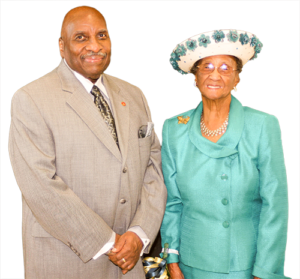[PRINT HERE] John 4 (4-12-17) Detail Notes
St. Joseph Missionary Baptist Church
Wed Night Bible Study
JOHN 4:1-26
Dr. E.C. Gregory, PhD – Bible Facilitator 4-12-17 Dr. H.T. Rhim, Pastor
- Jesus’ interview with a Samaritan woman (4:1-26)
4:1-3. In Greek these verses are one long sentence, introducing the reader to a second long interview by Jesus. The words, When the Lord learned of this (v. 3), are actually the first phrase in Greek in verse 1. The sudden prominence of Jesus,evidenced by the growth of His followers, caused the Pharisees to take special notice of Him. Since Jesus was working on God’s schedule, He knew how His ministry would end. Until that appointed time, He must live carefully, so He withdrew from the conflict until His “hour” (7:6, 8, 30; 8:20; cf. 12:23; 13:1; 17:1). He left Judea (cf. 3:22) and went back… to Galilee.
This second interview is another illustration of the fact that “He knew what was in a man” (2:25). The Samaritan woman’s encounter contrasts sharply with Nicodemus. Nicodemus was seeking; she was uninterested. Nicodemus was a respected ruler; she was an outcast. Nicodemus was serious; she was flippant. Nicodemus was a Jew; she was a despised Samaritan. Nicodemus was moral; she was immoral. Nicodemus was orthodox; she was profane. Nicodemus was learned in religious matters; she was ignorant. Yet in spite of all the differences between this “churchman” and this woman of the world, they both needed to be born again. Both had needs only Christ could meet.
| Contrasts Between Nicodemus and the Samaritan Woman (John 3-4) | ||
| Nicodemus | Samaritan Woman | |
| PLACE | (Jerusalem) Judah | Samaria |
| TIME | By night | About 6 p.m. |
| OCCASION | Planned visit | By chance |
| CONTENT | Theological | Practical |
| INITIATOR | Nicodemus | Jesus |
| ETHNIC GROUP | Jew | Samaritan (mixed blood) |
| SOCIAL STATUS | Highly respected ruler, teacher | Despised woman (immoral) |
| SEX | Male | Female |
| ATTITUDE | Polite, calling Jesus Rabbi | First hostility, then respect |
| FORM | Nicodemus faded out, dialogue became monologue | Dialogue carried to the end |
| RESULT | Not mentioned | Woman converted, witnessed, and people came to believe |
4:4. He had to go through Samaria. This was the shortest route from Judea to Galilee but not the only way. The other route was through Perea, east of the Jordan River. In Jesus’ day the Jews, because of their hatred for the Samaritans, normally took the eastern route in order to avoid Samaria. But Jesus chose the route through Samaria in order to reach the despised people of that region. As the Savior of the world He seeks out and saves the despised and outcasts (cf. Luke 19:10).
“Samaria” in New Testament times was a region in the middle of Palestine, with Judea to the south and Galilee to the north. Samaria was without separate political existence under the Roman governor. The people were racially mixed. Its center of worship was Mount Gerizim. Even today in Israel, a small group of Samaritans maintain their traditions.
Two Routes between Judea and Galilee
4:5-6. The village of Sychar was near Shechem. A well near Sychar today may be the same as Jacob’s well. The plot of ground which Jacob gave to Joseph is mentioned in Genesis 48:21-22. Jacob had purchased it years earlier (Gen. 33:18-20). Jesus, tired from walking, sat down by the well. It was about the sixth hour, which according to Roman time reckoning would have been 6 p.m. Jesus being truly human, experienced thirst, weariness, pain, and hunger. Of course He also possesses all the attributes of Deity (omniscience, omnipotence, etc.).
4:7-8. With His disciples in the city buying food, Jesus did a surprising thing: He spoke to a Samaritan woman, whom He had never met. She was of the region of Samaria, not the town of Samaria. The woman was shocked to hear a Jewish man ask for a drink from her. The normal prejudices of the day prohibited public conversation between men and women, between Jews and Samaritans, and especially between strangers. A Jewish Rabbi would rather go thirsty than violate these proprieties.
4:9. Surprised and curious, the woman could not understand how He would dare ask her for a drink, since Jews did not associate with Samaritans. The Jews “do not use dishes Samaritans have used.” A Rabbinic law of a.d. 66 stated that Samaritan women were considered as continually menstruating and thus unclean. Therefore a Jew who drank from a Samaritan woman’s vessel would become ceremonially unclean.
4:10. Having captured her attention and stimulated her curiosity, Jesus then spoke an mysterious saying to cause her to think. It was as if He had said, “Your shock would be infinitely greater if you really knew who I am. You—not I—would be asking!” Three things would have provoked her thinking: (1) Who is He? (2) What is the gift of God? (3) What is living water? “Living water” in one sense is running water, but in another sense it is the Holy Spirit (Jer. 2:13; Zech. 14:8; John 7:38-39).
4:11-12. She misunderstood the “living water” and thought only of water from the well. Since Jacob’s well was so deephow could Jesus get this living water? Today this well is identified by archeologists as one of the deepest in Palestine. Are You greater than our father Jacob? she asked. In Greek this question expects a negative answer. She could not conceive of Him as greater than Jacob. Her claim “our father Jacob” is interesting in light of the fact that the Jews claim him as the founder of their nation. That well had great tradition behind it but, she wondered, What does this Stranger have?
4:13-14. Jesus began to unveil the truth in an mysterious statement. This water from Jacob’s well would satisfy only bodily thirst for a time. But the water Jesus gives provides continual satisfaction of needs and desires. In addition one who drinks His living water will have within him a spring of life-giving water (cf. 7:38-39). This inner spring contrasts with the water from the well, which required hard work to acquire. Jesus was speaking of the Holy Spirit who brings salvation to a person who believes and through Him offers salvation to others.
4:15. The woman could not grasp this dark saying because of her sin and materialism. All she could understand was that if she had a spring she would not get thirsty and would not have to work so hard.
4:16-18. Since she was not able to receive His truth (1 Cor. 2:14), Jesus dealt with her most basic problem. (Apparently she never served Him a drink. He forgot His own physical need in order to meet her spiritual need.) Jesus suggested she get her husband and bring him back with her. This suggestion was designed to show her that He knew everything about her (cf. John 2:24-25). Her marital history was known to this Stranger, including the fact that she was living in sin. Thus in a few words Jesus had revealed her life of sin and her need for salvation.
4:19-20. Jesus was not just a passing Jewish Rabbi. Since He had supernatural knowledge, He must be a prophet of God. But instead of confessing her sin and repenting, she threw out an intellectual statement. Could He solve an ancient dispute? Samaritan religion held that the one place of divinely ordered worship was on top of nearby Mount Gerizim, whereas the Jews said it was on the temple mount in Jerusalem. Who was right in this controversy?
4:21. A time is coming (cf. v. 23) referred to the coming death of Jesus which would inaugurate a new phase of worship in God’s economy. In the Church Age, because of the work of the Spirit, worship is no longer centered in temples like those on Mount Gerizim and Mount Zion.
4:22. Jesus was firm in His declaration of the issues involved. The Samaritan religion was confused and in error: You Samaritans worship what you do not know. They were not the vehicle for the salvation of mankind. Israel was the nation chosen by God to have great privileges (Rom. 9:4-5). When Jesus said, Salvation is from the Jews, He did not mean that all Jews were saved or were especially pious. “Salvation is from the Jews” in the sense that it is available through Jesus, who was born of the seed of Abraham.
4:23. With the advent of the Messiah the time came for a new order of worship. True worshipers are those who realize that Jesus is the Truth of God (3:21; 14:6) and the one and only Way to the Father (Acts 4:12). To worship in truth is to worship God through Jesus. To worship in Spirit is to worship in the new realm which God has revealed to people. The Father is seeking true worshipers because He wants people to live in reality, not in falsehood. Everybody is a worshiper (Rom. 1:25) but because of sin many are blind and constantly put their trust in worthless objects.
4:24. God is Spirit is a better translation than the kjv’s “God is a Spirit.” God is not one Spirit among many. This is a declaration of His invisible nature. He is not confined to one location. Worship of God can be done only through the One (Jesus) who expresses God’s invisible nature (1:18) and by virtue of the Holy Spirit who opens to a believer the new realm of the kingdom (cf. 3:3, 5; 7:38-39).
4:25. The Samaritans expected a coming messianic leader. But they did not expect Him to be an anointed king of the Davidic line, since they rejected all the Old Testament except the Pentateuch. Based on Deuteronomy 18:15-18, they expected a Moses-like figure who would solve all their problems. The Samaritan woman now understood a part of what Jesus said. She longed for the messianic days when the Messiah would explain everything.
4:26. This self-declaration by Jesus Himself—I… am He (the Messiah)—is unusual. Normally in His ministry in Galilee and Judea (cf. 6:15) because of political implications, He veiled (hid) His office and used the title “Son of Man.”
The Bible Knowledge Commentary: An Exposition of the Scriptures by Dallas Seminary Faculty.





